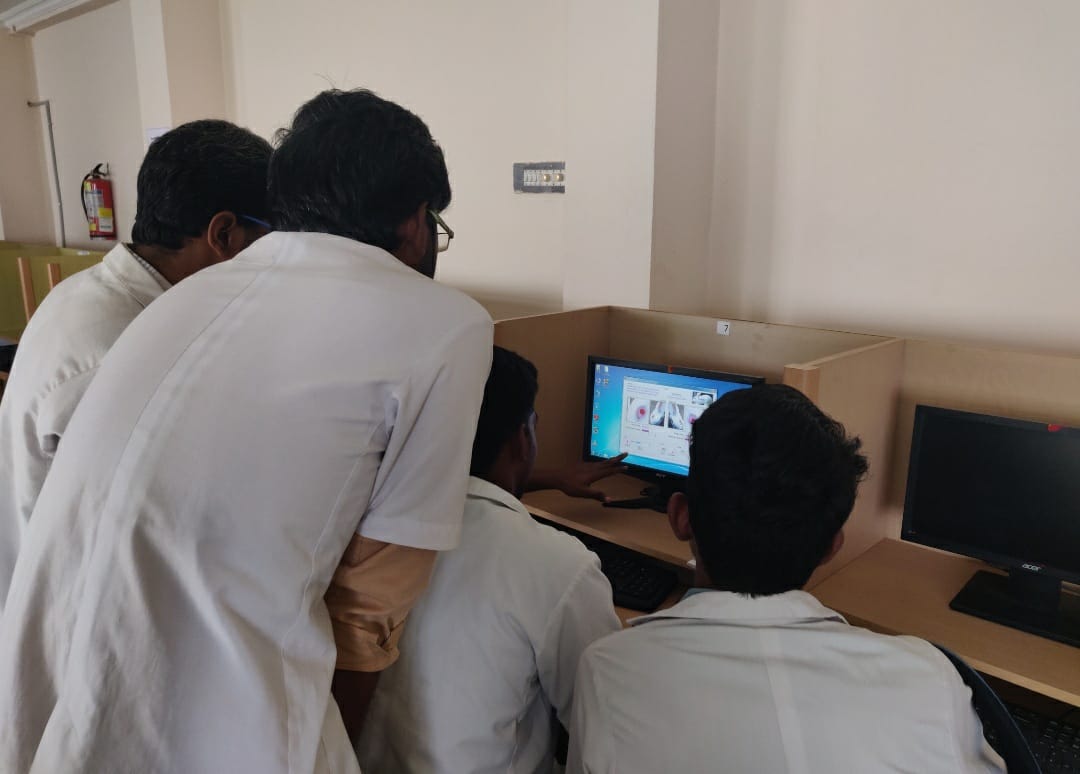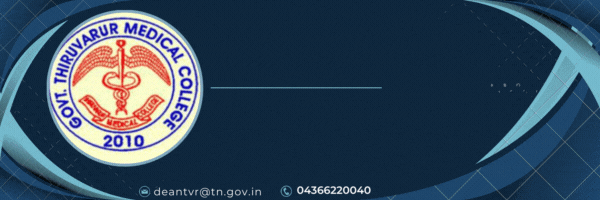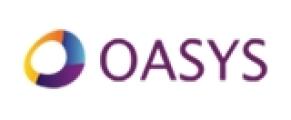Department of Pharmacology a basic medical sciences specialty, primarily deals with imparting knowledge and skills concerning with drug administration to health care professional students from medical and paramedical specialties. Pharmacology stands the basis and pillar of clinical medicine and therapeutics. The field originates from the ancient civilizations and has grown leaps and bounds. Earlier the branch focused on natural substances especially plant extracts. Later it developed as a biomedical science that applied the principles of scientific experimentation to therapeutic context.
Various subdivisions include Pharmacovigilance, Pharmacogenetics, Pharmacogenomics, Pharmacognosy, Marine pharmacology, Environmental pharmacology, Toxicology, Posology etc., Now we are ahead towards genetics, molecular biology and other advance tools helping us to transform information about molecular mechanism. Ultimately we will reach the goal of personalized medicine.
The department emphasizes and inculcates in young medical students the chemical and structural properties of the drugs and also teaches the way the body interacts with the drug and how it brings about the modifications or cure for various pathologies. Through the various detailed account of interactions and toxicities it also generates prudent doctors in prescribing drugs with caution.
Our department imparts the students not only the concept of using drugs but also the efficient way of dosing the drugs based on a person’s weight and age and also the rational prescription where by the cost effectiveness is also taken into account. Our department is in the process of getting In silico methods – Computer assisted learning for animal experiments which will definitely give practical knowledge about the various actions of drugs to medical students.

Our department is committed to excellence in teaching under graduate students since 2010 and guiding various co-curricular activities. It is armed with dedicated, committed and dynamic faculties with immense passion for teaching. Teaching and research opportunities are satisfactorily met with the availability of well-equipped facilities such as air conditioned lecture halls, demonstration rooms with high-quality Audio-Visual aids, research and experimental lab. The department is also involved in rendering its clinical expertise with regard to Drug safety monitoring and Reporting with contributions of our faculties in the pharmacy and therapeutics committee and pharmacovigilance respectively. Faculties also have to their credit research publications in national and international renowned indexed journals.
ACADEMIC ACTIVITIES:
We teach Pharmacology for the following courses – II MBBS, I & II B. Sc., Allied Health Sciences, Diploma & Certificate Courses.
The goal of teaching undergraduate students in Pharmacology is to inculcate the essentials of rational and scientific basis of therapeutics. Also, to enable students capable of using drugs in clinical practice with scientific awareness by means of integrated teaching with clinical and pre-clinical departments.
To facilitate students to develop in-depth pharmacology knowledge pertaining to rational use of drugs, clinical pharmacology, pharmacovigilance and pharmacoeconomics.
Practical sessions include Objective Structured Practical Examination (OSPE), Clinical Pharmacology exercises, Dose Calculation, Pharmacoeconomics etc.,
ELECTIVE POSTINGS:
For Third MBBS Part-II students in the topics like Prescription auditing, Pharmacovigilance, Clinical Research and Clinical Pharmacy.
The goal of elective postings is to expose students to the role of Hospital Pharmacologists in prescription auditing, assessing drug information, high alert drugs, look alike and sound alike medications and devising hospital formulary and antibiotic policies.
To orient students towards essential aspects of clinical trials including interpretation of its results, importance of adherence to GCP guidelines and therapeutic drug monitoring, by means of a short industrial internship.
To foster and broaden the research perspectives among students in the field of pharmacology by leveraging collaborative multidisciplinary approaches.
CO-CURRICULAR EDUCATIONAL ACTIVITIES:
We conduct small group discussions, debates, case resolution and student symposiums periodically to enhance the competitive spirit among young minds apart from didactic lectures. We also encourage and guide students to participate in Model making, Poster making and oral / poster presentations.
RESEARCH ACTIVITIES:
Members of the faculty of the Department of Pharmacology are involved in collaborative research with various clinical Departments. We have been guiding medical students in ICMR –Short Term Student projects.
PAPER PUBLICATIONS BY FACULTIES
- DR. N. ASVINI, MD.,DDVL., ASSOCIATE PROFESSOR,
HEAD OF THE DEPARTMENT i/c
- A CLINICAL THERAPEUTIC CORRELATION IN POISONING CASES – A
RETROSPECTIVE ANALYSIS IN A TERTIARY CARE HOSPITAL INDIAN JOURNAL OF APPLIED RESEARCH 2021 :5(11),35-39
- EFFECT OF BIOTIN ON THE LIPID PROFILE – TOTAL CHOLESTEROL, LDL,
TRIGLYCERIDE, VLDL AND HDL OF DYSLIPIDEMIC PATIENTS INTERNATIONAL JOURNAL DENTAL AND MEDICAL SCIENCES RESEARCH 2018 :8(2),12-20
- SULPHASALAZINE INDUCED TOXIC EPIDERMAL NECROLYSIS A CASE REPORT IOSR JOURNAL OF PHARMACY 2013 :11(5),09-11
- COMBINATION OF BIOTIN WITH ATORVASTATIN ACHIEVES FAVOURABLE TOTAL CHOLESTEROL : HDL RATIO IN SECONDARY DYSLIPIDEMIA : A SINGLE CENTRE, PROSPECTIVE, OPEN LABEL, PARALLEL GROUP, COMPARATIVE STUDY.IOSR JOURNAL OF PHARMACY 2016 : 4(6), 34-40
- DR. C. PREETH, MD., DO., ASSISTANT PROFESSOR
- A RANDOMIZED COMPARATIVE STUDY OF EFFICACY AND SAFETY OF EPALRESTAT AND METHYLCOBALAMIN IN PATIENTS WITH DIABETIC NEUROPATHY. INDIAN JOURNAL OF APPLIED RESEARCH. 2020;10(1):9 TO 12
- DR. M. R. SABARISELVAN, MD., ASSISTANT PROFESSOR
- A COMPARISON OF COMPUTER ASSISTED LEARNING AND CONVENTIONAL TEACHING METHOD IN EXPERIMENTAL PHARMACOLOGY A QUESTIONNAIRE BASED STUDY. INDIAN JOURNAL OF APPLIED RESEARCH. 2019;9(11).
- EVALUATION OF ANTI OXIDANT EFFECT OF ORALβ – CAROTENE AND TOPICAL LYCOPENE ON BURNS WOUND INDUCED RATS. 2014: 9(2),46-53
ADVERSE DRUG REACTIONS MONITORING CENTRE (AMC)
Adverse drug reactions monitoring centre, under the Pharmacovigilance Programme of India (PvPI) started functioning in the department from February 2021 onwards.
Pharmacovigilance Committee includes Head of the Department, Department of Pharmacology as Chair Person and Heads of all Clinical departments as members.
Causality Assessment Committee:
- Dr. C. Preeth, MD.,DO., Co-Ordinator, AMC, GTMC as Chair Person
- Dr. R. Sureshkumar, MD., Deputy Co-Ordinator, AMC, GTMC as Member Clinician.
- Mr. Kumar, Chief Pharmacist, GTMC as Member

